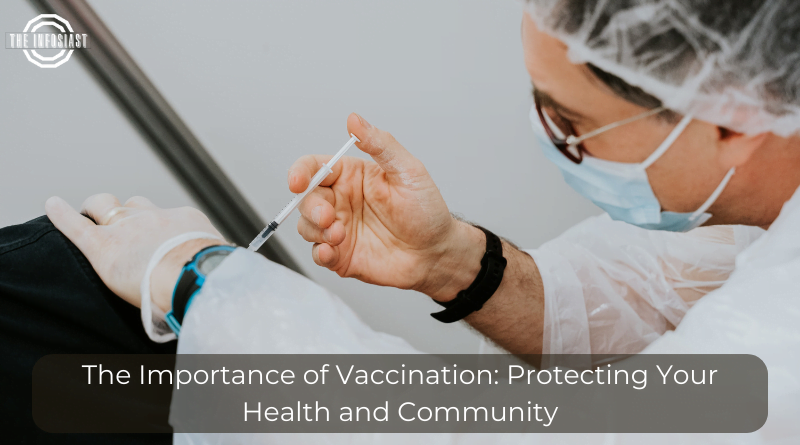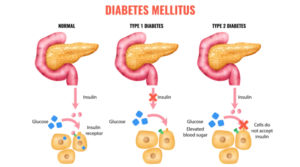
Understanding the Power of Vaccination
In the ever-evolving world of healthcare, vaccination stands as one of the most effective tools in safeguarding individual and community well-being. By boosting the immune system against infectious diseases, vaccines have eradicated or controlled numerous deadly illnesses throughout history. In this article, we will delve into the significance of vaccination, the benefits it offers, and address common concerns surrounding immunization.
The Science Behind Vaccination
Vaccination works by introducing a weakened or inactive form of a pathogen into the body. This prompts the immune system to recognize the invader and develop antibodies to fight it off. By creating this immune response without causing the actual disease, vaccines enable the body to build immunity against potential infections. This process not only protects the vaccinated individual but also contributes to herd immunity, safeguarding those who cannot receive vaccines due to medical reasons.
The Remarkable Impact of Vaccination on Disease Control
History has borne witness to the transformative power of vaccination. Diseases like smallpox, once a global scourge, were eradicated through large-scale vaccination efforts. Polio, measles, mumps, and rubella have also been significantly reduced, preventing countless deaths and disabilities. Vaccination programs have been critical in controlling outbreaks and ensuring public health security worldwide.
Debunking Common Vaccination Myths
Unfortunately, misinformation surrounding vaccines has led to hesitancy and reluctance in some communities. Addressing these concerns is crucial to encouraging vaccination and ensuring public health. Let’s debunk some common vaccination myths:
a) Myth: Vaccines Cause Autism.
Fact: Extensive research has disproven any link between vaccines and autism. The original study linking the two has been retracted, and multiple large-scale studies have found no such connection.
b) Myth: Natural Immunity is Better Than Vaccination.
Fact: While recovering from a disease may grant immunity, it comes at a significant cost of potential complications and even death. Vaccination offers a safer route to immunity without the risks associated with the disease itself.
c) Myth: Vaccines Contain Harmful Ingredients.
Fact: Vaccines undergo rigorous testing to ensure safety. They do contain some additives, but these are present in tiny amounts and have been extensively studied for safety.
Overcoming Vaccine Hesitancy
Engaging with individuals who are hesitant about vaccines requires empathy and understanding. Sharing stories of how vaccines have protected communities and prevented outbreaks can be powerful. Additionally, healthcare providers can play a pivotal role in addressing concerns, providing accurate information, and fostering open dialogues.
Vaccination – A Global Effort
Vaccination knows no borders; it is a global endeavor. International organizations and governments work together to ensure that vulnerable populations have access to life-saving vaccines. Initiatives like GAVI, the Vaccine Alliance, have been instrumental in increasing vaccine coverage in low-income countries.
Vaccination is undeniably one of the most significant achievements in modern medicine, saving millions of lives and preventing suffering. By understanding the science behind vaccination, dispelling myths, and fostering a global commitment to immunization, we can protect ourselves, our loved ones, and our communities from preventable diseases. Embracing vaccination is a crucial step towards a healthier, safer world for all.
The Role of Vaccination in Public Health: A Shield of Protection
The Definitive Role of Vaccination in Public Health
Public health is the collective responsibility of every individual, and vaccination plays a pivotal role in this pursuit. By fortifying individuals against infectious diseases, vaccines form an essential shield of protection, ensuring healthier societies and preventing outbreaks. This article explores the crucial role of vaccination in public health, the impact of immunization on community well-being, and how individuals can actively participate in promoting public health.
Vaccination – A Cornerstone of Disease Prevention
Vaccination serves as a cornerstone of disease prevention, offering an efficient and cost-effective strategy to combat infectious diseases. The widespread adoption of vaccines has been instrumental in reducing the burden of diseases such as tuberculosis, hepatitis, and influenza, enhancing overall public health outcomes.
Herd Immunity – A Collective Defense
Herd immunity, also known as community immunity, is an indirect benefit of vaccination. When a sufficient percentage of a population is immune to a specific disease, either through vaccination or previous infection, the spread of the disease is significantly impeded. This protective effect extends to individuals who cannot be vaccinated, such as those with compromised immune systems or allergies.
Immunization Programs – The Path to Eradication
Through targeted immunization programs, diseases that once wreaked havoc on communities are now on the verge of eradication. The success story of the global effort to eliminate polio exemplifies how dedicated vaccination campaigns can conquer formidable challenges.
Overcoming Barriers to Vaccination Access
Ensuring equitable access to vaccines is essential for the success of public health initiatives. Barriers such as geographical limitations, financial constraints, and vaccine hesitancy need to be addressed. Governments, non-governmental organizations, and healthcare providers must collaborate to reach vulnerable populations and bridge the immunization gap.
The Impact of Vaccine Misinformation
Misinformation can be detrimental to public health efforts. The dissemination of false information about vaccines has led to skepticism and hesitancy, hindering vaccination rates in some regions. Combatting misinformation requires a united front of healthcare professionals, researchers, and media outlets disseminating accurate information about vaccine safety and efficacy.
A Call to Action – Individual Responsibility in Public Health
Recognizing the collective impact of individual actions is crucial in promoting public health. By ensuring their vaccination is up to date, individuals not only protect themselves but also contribute to the well-being of their communities. Engaging in open conversations about vaccination, based on accurate information, can help dispel myths and foster vaccine confidence.
Vaccination is the bedrock of public health, safeguarding individuals and communities from preventable diseases. The achievements of vaccination programs in disease control and eradication are a testament to human ingenuity and dedication to improving global health. Embracing the role of vaccination, promoting equitable access, and combating misinformation are integral steps in building healthier, more resilient societies. Together, we can strengthen the shield of protection that vaccines provide and work towards a healthier future for all.



